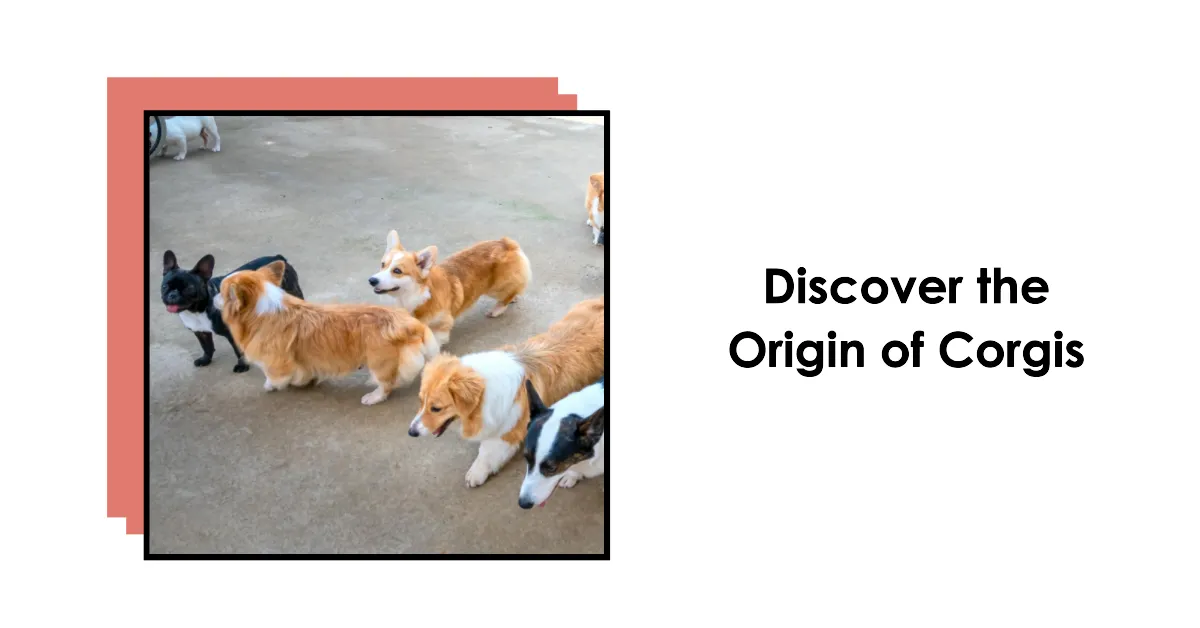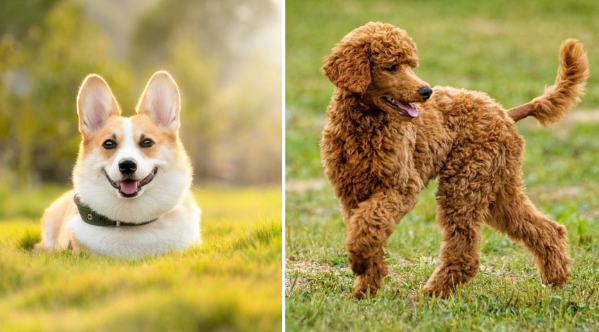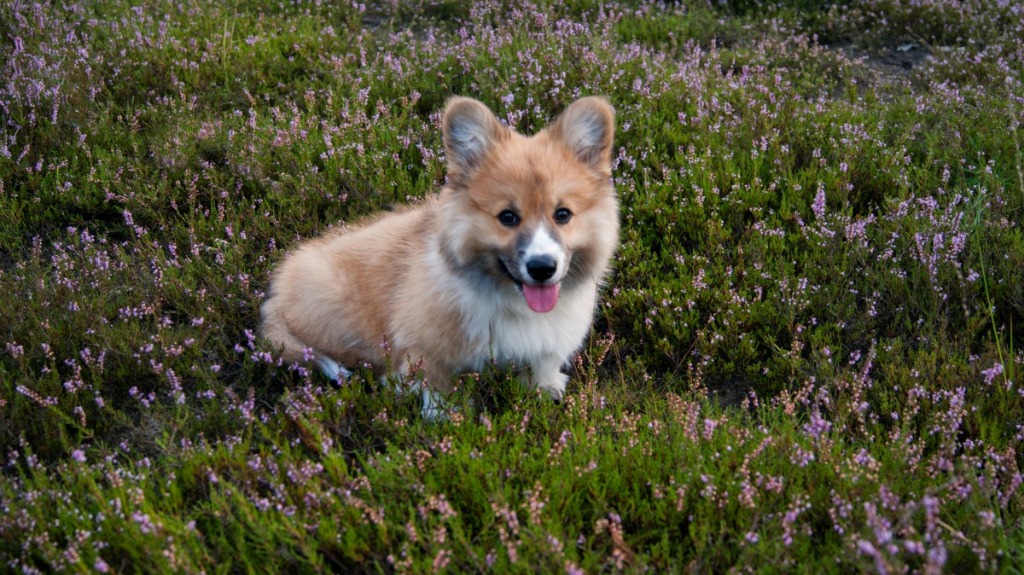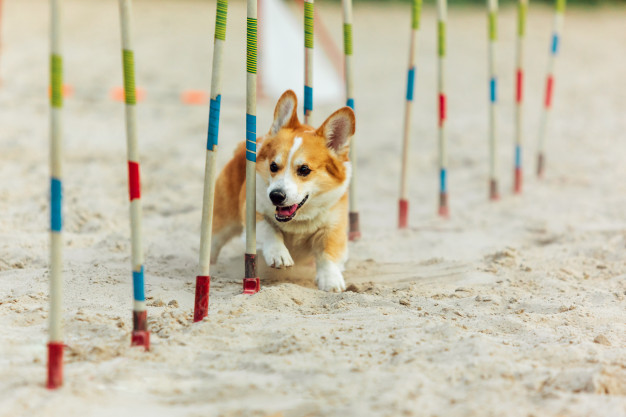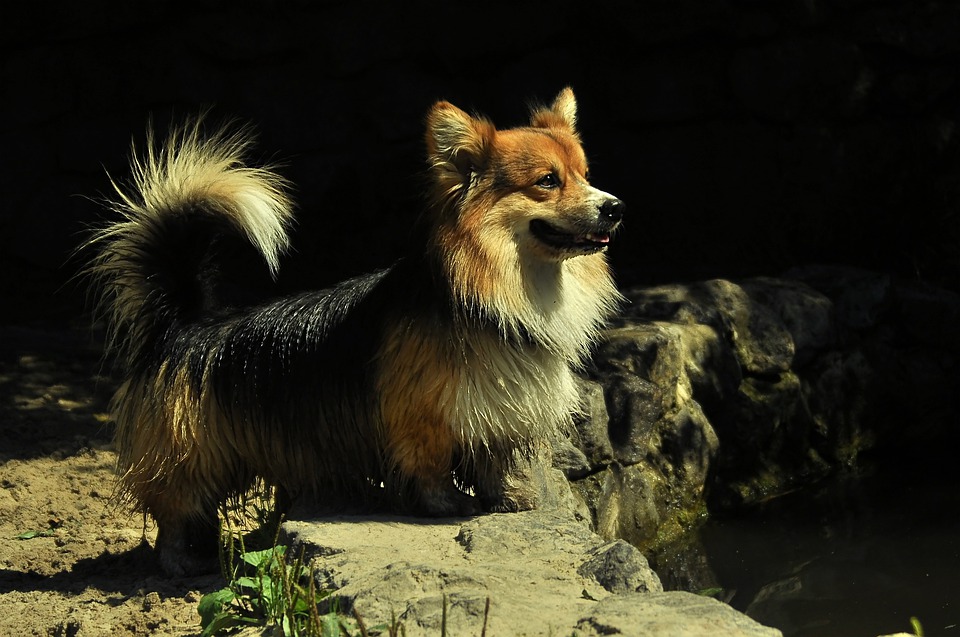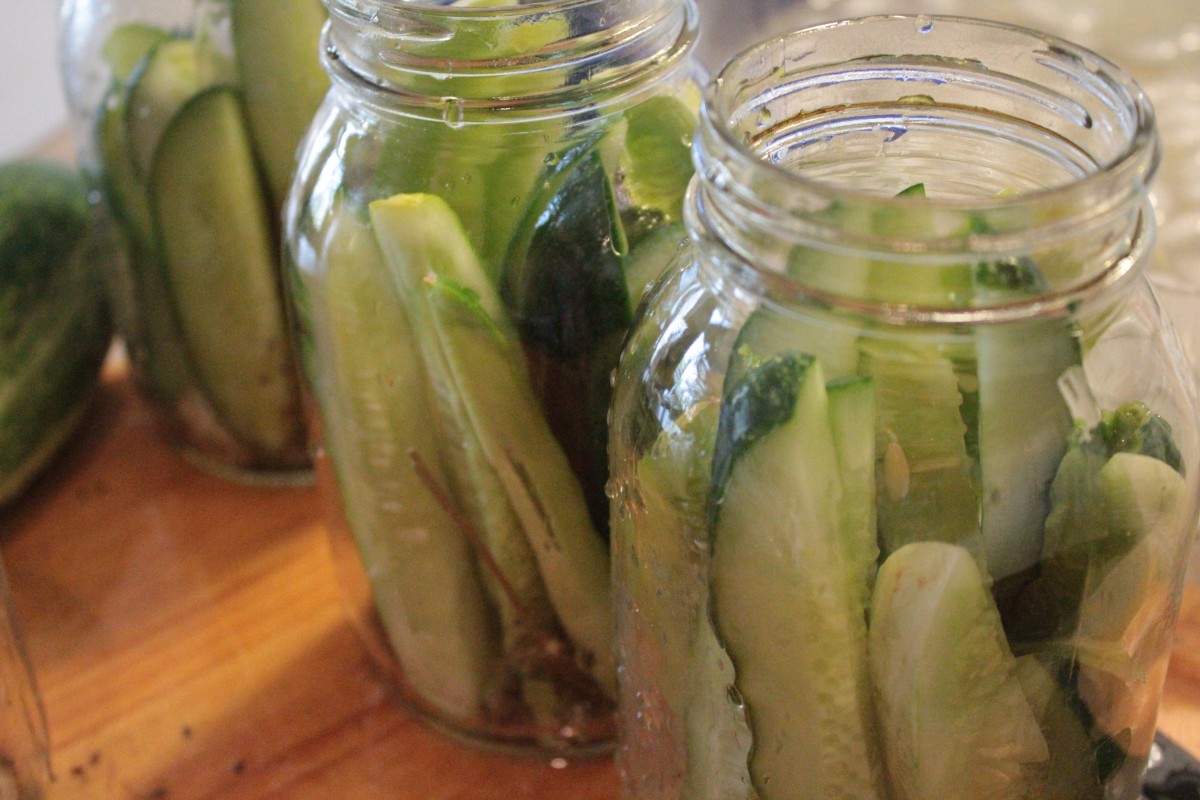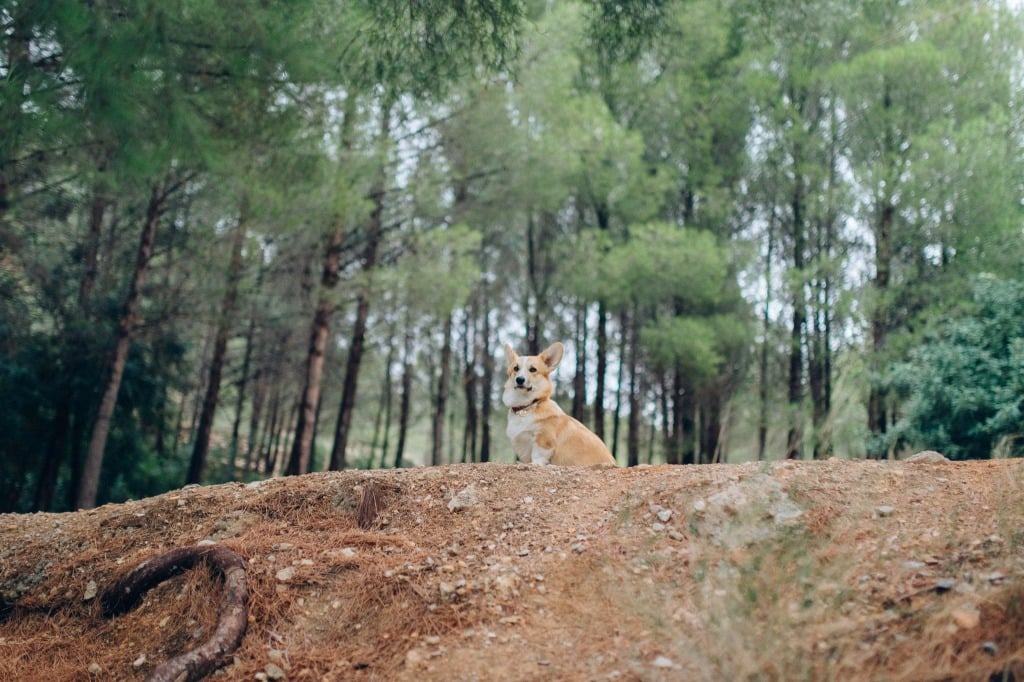Decoding the Ethics of Responsible Corgi Breeding

Do you consider yourself a passionate corgi lover?
Well, here's something you probably don't know: the ethics behind responsible corgi breeding.
As you embark on this journey, it's important to understand the principles that guide responsible breeders to ensure the well-being of these adorable companions.
From health testing and genetic diversity to creating a loving environment and socializing corgis, there's a lot more to it than meets the eye.
In this exploration, we will delve into the intricate world of responsible corgi breeding, uncovering the standards and practices that ensure the happiness and welfare of these delightful dogs.
So, let's decode the ethics and discover how we can contribute to the betterment of corgis everywhere.
Breeding Practices: Health Testing and Genetic Diversity
When breeding corgis responsibly, it's essential to prioritize health testing and ensuring genetic diversity.
Breeding ethics demand that breeders take into account the potential health concerns that may arise in the future generations of corgis. By conducting thorough health tests on the parent dogs, breeders can identify any genetic conditions or diseases that may be passed on to their offspring. This not only helps in preventing the spread of hereditary diseases but also ensures the overall well-being of the corgi breed.
Additionally, maintaining genetic diversity is crucial to prevent the accumulation of harmful genetic traits. By introducing new bloodlines and avoiding excessive inbreeding, breeders can help to reduce the risk of health issues and promote the long-term vitality of the breed.
Prioritizing health testing and genetic diversity is a fundamental aspect of responsible corgi breeding that ensures the production of healthy and happy corgis.
Responsible Ownership: Ensuring a Loving and Caring Environment
How can you ensure a loving and caring environment as a responsible owner of a corgi? Here are four key ways to create a nurturing and happy home for your furry friend:
- Show unconditional love: Corgis thrive on affection and attention. Make sure to shower them with love and praise, creating a bond built on trust and security.
- Provide proper exercise: Corgis are active dogs that need regular exercise to stay healthy and happy. Take them for daily walks, play interactive games, and give them plenty of mental stimulation.
- Maintain a balanced diet: A responsible owner ensures their corgi's nutritional needs are met. Consult with a veterinarian to determine the best diet for your corgi's age, size, and activity level.
- Create a safe environment: Make your home a safe haven for your corgi. Remove potential hazards, provide comfortable resting areas, and ensure they have access to fresh water and shade.
Socialization: Building Well-Adjusted Corgis
When it comes to raising a well-adjusted Corgi, early socialization is key. By exposing your puppy to a variety of people, animals, and environments during their critical development period, you can help them become confident and adaptable adults.
Techniques such as puppy classes, playdates, and controlled introductions can all contribute to their social development. Remember, it's crucial to provide positive experiences during socialization to ensure a happy and well-rounded Corgi.
Early Socialization Benefits Corgis
Socializing your corgi during its early development stage is crucial for building a well-adjusted and sociable companion. By exposing your corgi to various people, animals, and environments, you're providing them with the necessary tools to navigate the world confidently.
Here are four key benefits of early socialization for corgis:
- Reduced Anxiety: Early socialization helps corgis feel comfortable in different situations, reducing anxiety and fearfulness later in life.
- Improved Behavior: Socialization teaches corgis how to interact appropriately with humans and other animals, leading to better behavior and fewer behavioral issues.
- Enhanced Adaptability: Corgis who are well-socialized adapt more easily to new environments, making travel and changes in routine less stressful for both you and your furry friend.
- Stronger Bond: Socializing your corgi from an early age strengthens the bond between you and your pet, fostering trust and loyalty.
Investing time and effort into early socialization will pay off in the long run, ensuring that your corgi grows up to be a happy, well-adjusted, and confident companion.
Techniques for Proper Socialization
To properly socialize your corgi, incorporate a range of positive experiences with people, animals, and environments during their early development stage. Positive reinforcement is key to teaching your corgi how to interact with others in a healthy and confident manner. Reward desired behaviors, such as calm greetings and friendly interactions, with treats, praise, or playtime.
Additionally, exposure therapy can be beneficial for helping your corgi become comfortable in various situations. Gradually introduce them to new environments, people, and animals, starting with low-stress situations and gradually increasing the level of challenge. This will help them build resilience and adaptability.
Remember to provide a safe and supportive environment during this process, allowing your corgi to explore and learn at their own pace. With patience and consistency, you can raise a well-socialized and happy corgi.
Importance of Positive Experiences
To build well-adjusted Corgis, it's essential to provide them with a multitude of positive experiences during their early development stage, fostering their socialization skills. This is crucial for their overall mental and emotional well-being. Here are four reasons why positive experiences and socialization are so important:
- Positive reinforcement:
By exposing your Corgi to a variety of positive experiences, you can reinforce good behavior and help them develop confidence. Rewarding them with treats, praise, and playtime will create a positive association with new experiences. - Mental stimulation:
Socialization exposes Corgis to different people, animals, and environments, which stimulates their minds and prevents boredom. This helps them become adaptable and resilient in various situations. - Building trust:
By providing positive experiences, you build trust with your Corgi. This trust is essential for a strong bond and effective communication between you and your furry friend. - Reducing fear and anxiety:
Early socialization helps Corgis become more comfortable and less fearful in new situations, reducing anxiety and preventing behavior problems later in life.Ethical Sales: Finding Suitable Homes for Corgi Puppies
When it comes to finding suitable homes for Corgi puppies, there are two key points to consider: the adoption screening process and responsible breeder selection.
A responsible breeder will have a thorough screening process in place to ensure that potential owners are prepared to meet the needs of a Corgi. This includes evaluating their living situation, lifestyle, and knowledge of the breed.
Additionally, responsible breeders prioritize the well-being of their puppies above profit, meaning they'll carefully select homes that can provide a loving and suitable environment.
Adoption Screening Process
In the responsible breeding of corgis, an article determiner is used to ensure that suitable homes are found for corgi puppies through a diligent adoption screening process. This process is essential to guarantee that the puppies are placed in environments that will provide them with the love, care, and attention they need.
Here are the four key criteria that reputable breeders consider during the adoption screening process:
- Home environment: Breeders assess the living situation of potential adopters to ensure it's suitable for a corgi. This includes factors such as space, safety, and whether there are other pets or children in the household.
- Commitment and knowledge: Breeders want to ensure that adopters are knowledgeable about the breed's specific needs and are committed to providing lifelong care for the corgi.
- Financial stability: Corgis require regular veterinary care, proper nutrition, and grooming. Breeders evaluate potential adopters' financial stability to ensure they can meet these requirements.
- References and background checks: Breeders may ask for references from veterinarians or previous pet ownership to ascertain the suitability of potential adopters.
Responsible Breeder Selection
During the adoption screening process, you'll need to carefully select a responsible breeder who can ensure ethical sales and find suitable homes for corgi puppies.
When it comes to breeder ethics, it's important to consider their breeding criteria. A responsible breeder should prioritize the health and well-being of their dogs, ensuring they're free from genetic diseases and have undergone necessary health screenings. They should also provide a clean and nurturing environment for the puppies, encouraging socialization and proper care.
Look for breeders who've a genuine love and passion for the breed, as they'll be more likely to prioritize the welfare of their dogs over profits. It's also important to find a breeder who screens potential buyers, ensuring that the puppies are going to loving and responsible homes.
Responsible Breeder Standards: Codes of Conduct and Certifications
Ensure that your corgi breeding practices align with the established standards of responsible breeders by adhering to codes of conduct and obtaining relevant certifications. By doing so, you demonstrate your commitment to ethical and responsible breeding practices. Here are four important aspects to consider:
- Breeder qualifications: As a responsible breeder, it's essential to possess the necessary knowledge and experience in corgi breeding. Educate yourself about breed standards, genetics, and health issues specific to corgis.
- Codes of conduct: Embrace and follow the codes of conduct established by reputable breeding organizations. These codes outline guidelines for responsible breeding, including proper care, socialization, and finding suitable homes for the puppies.
- Certifications: Obtain relevant certifications that demonstrate your commitment to responsible breeding. These certifications may include health testing, genetic screening, and obedience training.
- Continued learning: Stay updated with the latest research and best practices in corgi breeding. Attend workshops, seminars, and conferences to enhance your knowledge and skills.
Overpopulation and Rescue Efforts: Supporting Corgi Welfare
Support Corgi welfare by actively participating in efforts to address overpopulation and rescue initiatives.
Overpopulation in Corgis is a serious issue that results in overcrowded shelters and an increased number of dogs in need of homes. To combat this, it's important to support overpopulation solutions such as spaying and neutering programs. These programs help control the number of Corgis being bred, reducing the strain on shelters and ensuring that every Corgi has a chance at finding a loving home.
Additionally, supporting breed specific legislation can help regulate breeding practices and prevent irresponsible breeding. By advocating for stricter regulations, you can help ensure that Corgis are bred responsibly and that their welfare is prioritized.
Educating the Public: Promoting Responsible Corgi Ownership
To ensure responsible Corgi ownership, it's important to educate the public about proper care, training, and socialization techniques. Here are four key ways you can promote responsible Corgi ownership:
- Corgi Training Techniques: Teach owners the importance of positive reinforcement training methods. This includes using rewards and praise to encourage desired behaviors, rather than resorting to punishment or harsh training techniques.
- Understanding Corgi Needs: Educate potential owners about the specific needs of Corgis, such as regular exercise, mental stimulation, and a balanced diet. Help them understand that Corgis thrive in an environment that meets their physical and mental needs.
- Socialization: Stress the significance of early socialization for Corgis. Encourage owners to expose their Corgis to a variety of people, animals, and environments from a young age to ensure they grow up to be well-adjusted and confident dogs.
- Responsible Breeding: Educate the public about the importance of responsible breeding practices, such as health testing, genetic screening, and finding reputable breeders. Encourage potential owners to adopt from shelters or rescue organizations, rather than supporting unethical breeding practices.
Frequently Asked Questions
What Are Some Common Health Issues That Corgis Are Prone to and How Can Responsible Breeders Help Minimize These Risks?
Common corgi health issues include hip dysplasia and degenerative myelopathy. Responsible breeders can minimize these risks by conducting health screenings, only breeding healthy dogs, and providing proper care and nutrition.
How Can Potential Owners Ensure That They Are Providing a Loving and Caring Environment for Their Corgi?
To provide a loving and caring environment for your corgi, make sure to give them plenty of attention, exercise, and mental stimulation. Create a safe space, feed them a balanced diet, and show them affection daily.
What Are the Key Factors to Consider When Socializing a Corgi to Ensure They Become Well-Adjusted Adults?
When socializing your corgi, key factors to consider for their well-adjustment include implementing positive reinforcement training methods and exposing them to various environments, people, and other animals. These techniques will help them become confident and adaptable adults.
How Can Responsible Breeders Ensure That They Are Finding Suitable and Responsible Homes for Their Corgi Puppies?
To ensure that you find suitable and responsible homes for your corgi puppies, it's important to thoroughly vet potential owners. Ask questions, check references, and trust your instincts. Your pups deserve loving and committed owners.
What Are Some Specific Codes of Conduct and Certifications That Responsible Breeders Should Adhere to in Order to Maintain Ethical Breeding Practices?
To maintain ethical breeding practices, responsible breeders should adhere to specific codes of conduct and certifications. These certifications ensure that breeders meet high standards, promoting the well-being of the corgis and finding suitable homes for the puppies.

